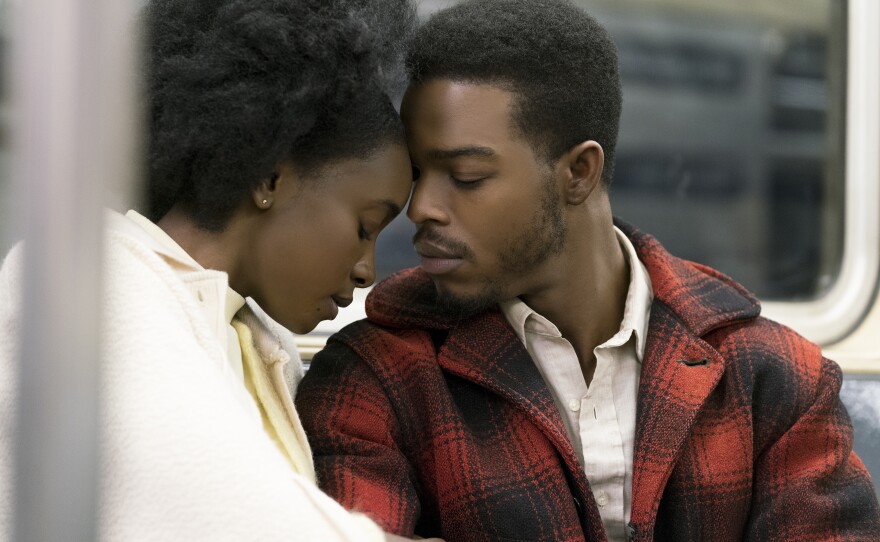
Companion viewing
"Go Tell It on the Mountain" (1985 American Playhouse TV)
"A La Place du Coeur" (1998 French adaptation of "If Beale Street Could Talk")
"I Am Not Your Negro" (2016)
Forget about the effects-driven worlds of "Mary Poppins Returns" and "Aquaman" and experience the true cinematic magic of Director Barry Jenkins’ "If Beale Street Could Talk."
Jenkins won an Oscar for his second feature film "Moonlight" (2016) and for his third film he turns to acclaimed writer James Baldwin for inspiration. Surprisingly, no other American filmmaker has tackled Baldwin for the screen. American Playhouse brought "Go Tell It on the Mountain" to TV audiences in 1985 and the French adapted "If Beale Street Could Talk" in 1998 (maybe the French felt an affinity for his work since he chose to live abroad in France).
Perhaps the reason for the lack of Baldwin film adaptations is that his works are exceedingly rich and complex and not easy to pigeonhole. He wrote eloquently about the Black experience but he never simplified the issues he saw before him. The documentary "I Am Not Your Negro" (using Baldwin's own words as the source material) brilliantly got to that complexity and provided a riveting portrait of the author and his work.
"If Beale Street Could Talk" is about the wrongful imprisonment of Fonny (Stephan James), a young African-American man, and Tish (KiKi Layne), the woman left behind to raise his child in Harlem in the 1970s. But in another sense it’s about so much more. It’s about the black experience in America, about injustice, about family, and about love. And Jenkins gets that. He understands that the story has many layers and he helps peel each one back through his skill as a visual storyteller.
Adapting a book to the screen is truly about translating from one medium to another. Baldwin had a profoundly poetic style of writing and Jenkins matches the author's prose with a cinematic eloquence. Movies are about images and Jenkins, as he proved in "Moonlight," knows how to convey a wealth of information through his shots, through how he moves his camera, what he focuses on, and how people are framed. Characters frequently look directly into the camera, which means they are directly engaging us the viewer. Jenkins doesn't exactly capture Baldwin's voice (but that is a tall order) but he does convey the beauty and power of the love between Tish and Fonny that was absolutely central to the book.
Jenkins delivers a cinematic poem that gives you goosebumps. "If Beale Street Could Talk" shows the power of love to transcend obstacles and the outrage we feel comes from understanding what has been cruelly and unjustly taken away from this young couple. "If Beale Street Could Talk" breaks your heart but also uplifts it. Jenkins sets a very high bar for future adaptations of Baldwin to meet.






